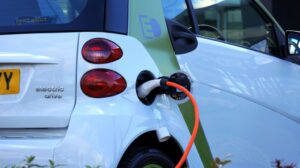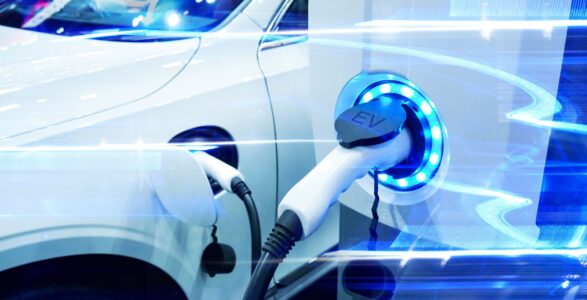Guide to Charging an Electric Car

Updated 5 November 2024 | Published 18 November 2019
Charging Options for Electric Vehicles
Charging your electric vehicle (EV) can be done at home or through a range of public charging points. The UK’s charging infrastructure has grown significantly, offering more flexibility and convenience than ever.
There are now four main types of EV charging:
- Ultra-Rapid
- Rapid
- Fast
- Slow
Ultra-Rapid Chargers: Found at motorway service stations and other high-traffic areas, ultra-rapid chargers can provide a 100-mile charge in 10-20 minutes. Compatible EVs can use chargers with 100 kW to 350 kW power, though this depends on the vehicle’s maximum charging capacity.
Rapid Chargers: Typically located at motorways, service stations, and other transport hubs, rapid chargers deliver up to 80% charge in around 30 minutes. Many EVs support rapid charging, but it’s not compatible with all models. Due to their high power demands, these cannot be installed at home.
Fast Chargers: Common in car parks, retail centres, and public stations, fast chargers (7-22 kW) can fully charge an EV in 3-8 hours. Home installations are often 7 kW and start at around £500 with grants available to reduce costs.
Slow Chargers: Usually installed at home, slow chargers operate at 3-6 kW and take 8-12 hours to charge a standard EV fully. Slow chargers are ideal for overnight charging at home, and while they take longer, they’re effective for smaller batteries or regular, shorter-distance use.
Home Charging Options
For home charging, a dedicated charging point is recommended for speed, safety, and efficiency. A home unit includes a weatherproof wall-mounted box with either a tethered cable or a socket for a portable cable.
Home installations must be done by qualified professionals, with government grants available to cover a portion of the cost. In 2024, the Electric Vehicle Homecharge Scheme (EVHS) provides a grant covering up to £350 towards installation costs. Most home chargers are either 3.7 kW (slow) or 7 kW (fast).
Tip: Check your vehicle’s connector type (Type 1 or Type 2) to ensure compatibility with your home charger.
How Long Does it Take to Charge an EV at Home?
Charging time varies by battery size, charger type, and vehicle compatibility.
Home chargers provide around 15-30 miles of range per hour on a 3.7-7 kW charger, while a standard three-pin plug delivers about 8 miles per hour of charging. To maximise speed and efficiency, consider your car’s maximum charge acceptance rate.
Charging Frequency
There’s no set rule for how often you need to charge an EV. Many owners prefer overnight charging to take advantage of cheaper electricity rates. Regular charging can also help maintain battery health, though this depends on the vehicle make and model. Plugging in after each trip is ideal if you want your car fully charged at all times.
Public Charging Networks
The UK has over 45,000 public charging points across a range of networks, including BP Pulse, Shell Recharge, and InstaVolt. However, users may need to register with specific networks and download their apps or carry RFID cards to access chargers. Some charging points accept contactless payments, simplifying access.
Fast and ultra-rapid charging usually requires payment, with rates varying by network. Tariffs are based on a mix of connection fees, time spent charging, and energy consumed (pence per kWh). Providers also offer subscription models with discounted rates for regular users.
Finding a Public Charging Point
Zapmap and similar apps list real-time charging point locations, availability, and types across the UK. Most new EVs now come equipped with navigation systems that show nearby chargers compatible with the car’s connector type. Urban areas are well-served by public chargers, while rural locations tend to have fewer options.
How to Use a Public Charging Point
Using a public charging point requires the provider’s app, RFID card, or contactless payment. For secure charging, some points lock the cable in place, which you’ll need to unlock with the app or card before disconnecting. As processes vary by provider, it’s wise to familiarise yourself with your network before heading out.
Motorway Charging
Motorway charging has improved, with multiple operators now offering high-speed chargers at service stations. Major providers like Gridserve operate the Electric Highway with rapid and ultra-rapid options. Prices vary by provider, but most motorway chargers now support contactless payments for easier access.
Ready to Drive Your Dream Car?
Discover leasing deals tailored for all credit backgrounds.



